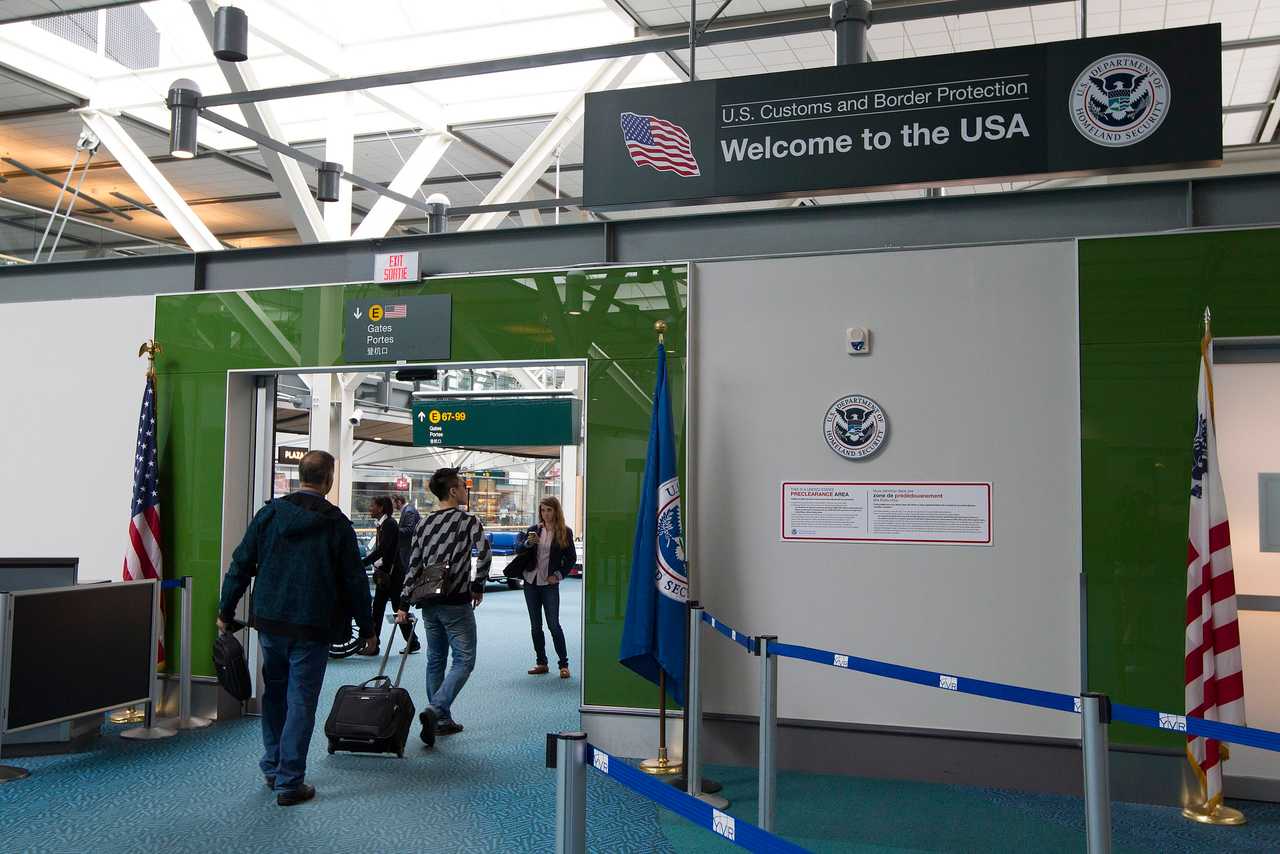
By Chris Spiker From Daily Voice
Some international travelers coming to the US on tourist or business visas may soon have to pay a bond of up to $15,000, in the Trump administration's latest immigration crackdown effort.
The State Department released details on the visa bond pilot program in the Federal Register on Tuesday, Aug. 5. The temporary final rule targets countries with high visa overstay rates or citizenship-for-sale programs.
The pilot will begin on Wednesday, Aug. 20, and end on Wednesday, Aug. 5, 2026. The program will allow US consular officers to require certain visa applicants to post a bond of $5,000, $10,000, or $15,000 before entering the country.
Travelers from Malawi and Zambia will face up to $15,000 bonds, the State Department announced hours after the program details were first published. A full list of countries will be revealed "no fewer than 15 days" before the pilot begins, and the list could be changed throughout the program.
The pilot only applies to applicants for B-1 or B-2 visas. Those visas are given for temporary visits related to business or tourism.
Malawi had an overstay rate of 14.32% and Zambia's was 10.45% in the 2023 fiscal year, according to the Department of Homeland Security's most recent data. In that time, the State Department issued 5,148 B-1/B-2 visas to nationals from the two African countries.
The visa bond requirement will appear as a notation on the traveler's visa and will generally limit their stay to 30 days. Travelers must enter and leave the US through Boston Logan International Airport, John F. Kennedy International Airport, or Washington Dulles International Airport.
The State Department claims the bonds are necessary to pressure other countries into preventing their citizens from overstaying their visas in the US.
"The pilot program is further designed to serve as a diplomatic tool to encourage foreign governments to take all appropriate actions to ensure robust screening and vetting for all citizens in matters of identity verification and public safety, to create safeguards in [citizenship by investment] programs that provide citizenship without any residency in the country, and to encourage specified countries with visa overstays to ensure their nationals timely depart the United States after making temporary visits," the rule states.
The Immigration and Nationality Act does permit visa bonds in certain cases. While the bonds have been proposed in the past, the State Department previously didn't push for them because the process can be time-consuming and could create "possible misperception" by the public.
This is the latest move by the Trump administration to add extra steps for foreign visitors. President Donald Trump signed an executive order that directs the State, Homeland Security, and Treasury departments to crack down on immigration.
In June, the White House announced travel restrictions for 19 countries. A $250 "visa integrity fee" was included in the spending plan previously named the "One Big Beautiful Bill" that Congressional Republicans passed in July.
Only 1-2% of non-immigrant visitors overstayed their visas annually from 2016 to 2022, according to the US Congressional Research Service. The Homeland Security's data also said nearly 315,000 travelers overstayed B-1/B-2 visas in fiscal year 2023, excluding Canada, Mexico, and Visa Waiver Program countries.
The highest overstay rates were among travelers from Chad (49.5%), Laos (34.8%), and Haiti (31.4%). The largest numbers of overstays came from Mexico (48,845), Colombia (40,884), and Haiti (27,269).
The State Department said it expects about 2,000 people to post bonds in the pilot.
"Until the pilot program countries are selected, the department is unable to estimate the number of visa applicants that will fall within the scope of the pilot program," the State Department said. "However, the department expects the parameters of, and the countries included in, the pilot program to be limited due to the number of aliens expected to be found otherwise qualified for visas, and uncertainty as to the number of aliens who will choose to post a visa bond."
The bonds must be paid through the Treasury Department's Pay.gov system after the visa interview and before a visa is issued. If the traveler leaves the US within their permitted timeframe and complies with all terms, the bond will be canceled and refunded. If not, the bond will be forfeited.
Travelers can't apply for waivers, but consular officers may request one in rare situations involving "urgent humanitarian needs" or government travel.

 Daily Voice
Daily Voice

 Fast Company
Fast Company MSNBC
MSNBC Fodors Travel
Fodors Travel KRWG Public Media
KRWG Public Media Reuters US Domestic
Reuters US Domestic Raw Story
Raw Story AlterNet
AlterNet Associated Press US and World News Video
Associated Press US and World News Video Associated Press US News
Associated Press US News Associated Press Top News
Associated Press Top News Newsweek Culture
Newsweek Culture